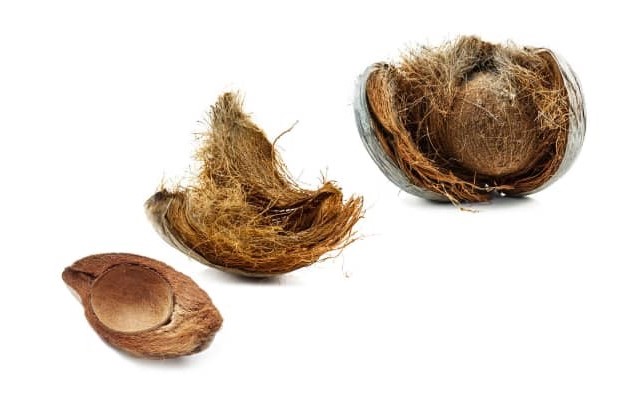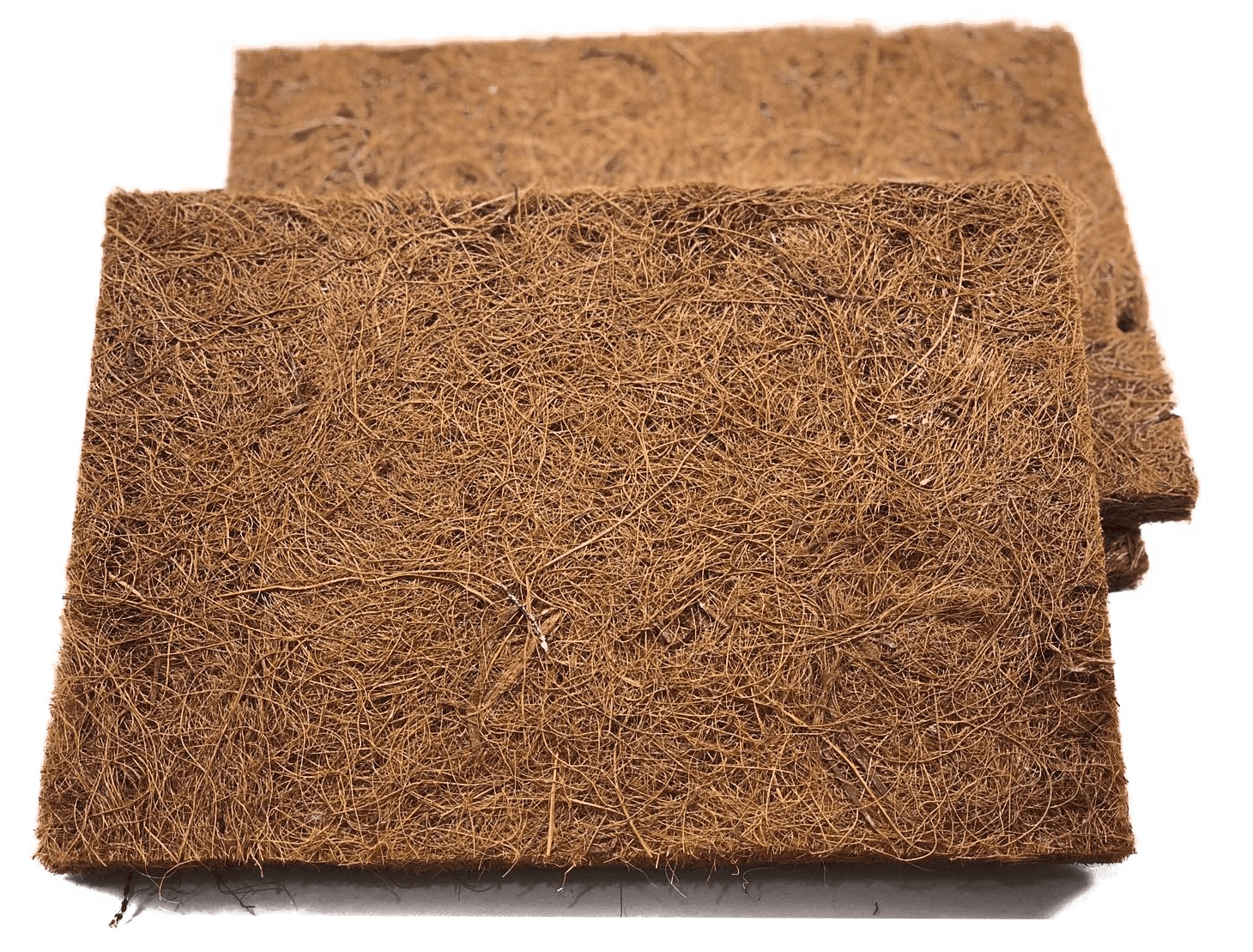Production
What is Coconut Fiber?
Coconut fiber, or coir fiber, is a natural material extracted from the husk of mature coconuts. Known for its strength, durability, and eco-friendly properties, it’s used in a wide range of industries including textiles, insulation, mats, ropes, and horticulture. Its production combines time-tested techniques and modern advancements to create a sustainable material suited for today’s eco-conscious world.

Our Manufacturing Process
Harvesting & Dehusking
Mature coconuts are harvested and dehusked to separate the fibrous shell, which makes up 35% of the coconut’s weight and contains durable, high-quality fibers for further processing.

Soaking & Retting
Husks are soaked to loosen fibers, using traditional fermentation or modern enzyme-based methods that reduce retting time, enhance fiber quality, and support environmentally sustainable processing.

Fiber Extraction Techniques
Retted husks are processed through traditional, mechanical, or green decortication to extract fibers efficiently, ensuring optimal quality for various industrial and eco-friendly applications.

Cleaning & Drying
Extracted fibers are thoroughly cleaned to remove impurities, then dried naturally or mechanically to achieve ideal moisture levels, ensuring quality, longevity, and readiness for processing or export.

Final Processing
Cleaned fibers are converted into yarn, mats, or blocks tailored for specific applications like horticulture and insulation, ensuring performance, usability, and efficient logistics.

Baling and Packaging
Processed fibers are baled and packaged using eco-friendly materials, ensuring protection, easy transport, and traceability, while maintaining quality throughout storage and distribution.

Quality Control at Every Stage

Moisture Content Testing
We test fiber moisture levels to stay within 20–25%, preventing bacteria and fungi growth during storage and transportation, ensuring product stability and quality.
pH Level Testing
The pH of coconut fiber is maintained neutral to slightly alkaline, crucial for plant compatibility in horticultural applications, ensuring optimal soil health and performance in growing environments.
Electrical Conductivity (EC) Testing
EC testing measures salt content and nutrient levels, ensuring fibers fall within safe thresholds for plant roots, using wet and dry methods to guarantee safe, grow-ready materials.
Purity Checks
We ensure every fiber batch is free from impurities like sand, stones, or debris, enhancing performance in applications like insulation or potting mediums by maintaining consistency &purity.
Regular Inspections
Rigorous inspections are conducted throughout production—from raw materials to packaging—ensuring each batch meets internal benchmarks and global standards, delivering the highest quality coconut fiber products.


Blending Tradition with Innovation
At Eva Insulation, we bring together generations of traditional expertise and cutting-edge engineering to create high-performance insulation solutions from natural coconut fiber. Our deep-rooted understanding of the material, combined with advanced manufacturing practices, allows us to produce eco-friendly products that meet the evolving demands of modern industries.
We prioritize both sustainability and innovation, ensuring that every fiber we process supports environmental well-being while delivering superior thermal and acoustic performance. By adhering to international standards and continuously refining our processes, Eva Insulation stands as a global benchmark in coconut fiber manufacturing—trusted by industries seeking reliability, efficiency, and a greener future.
